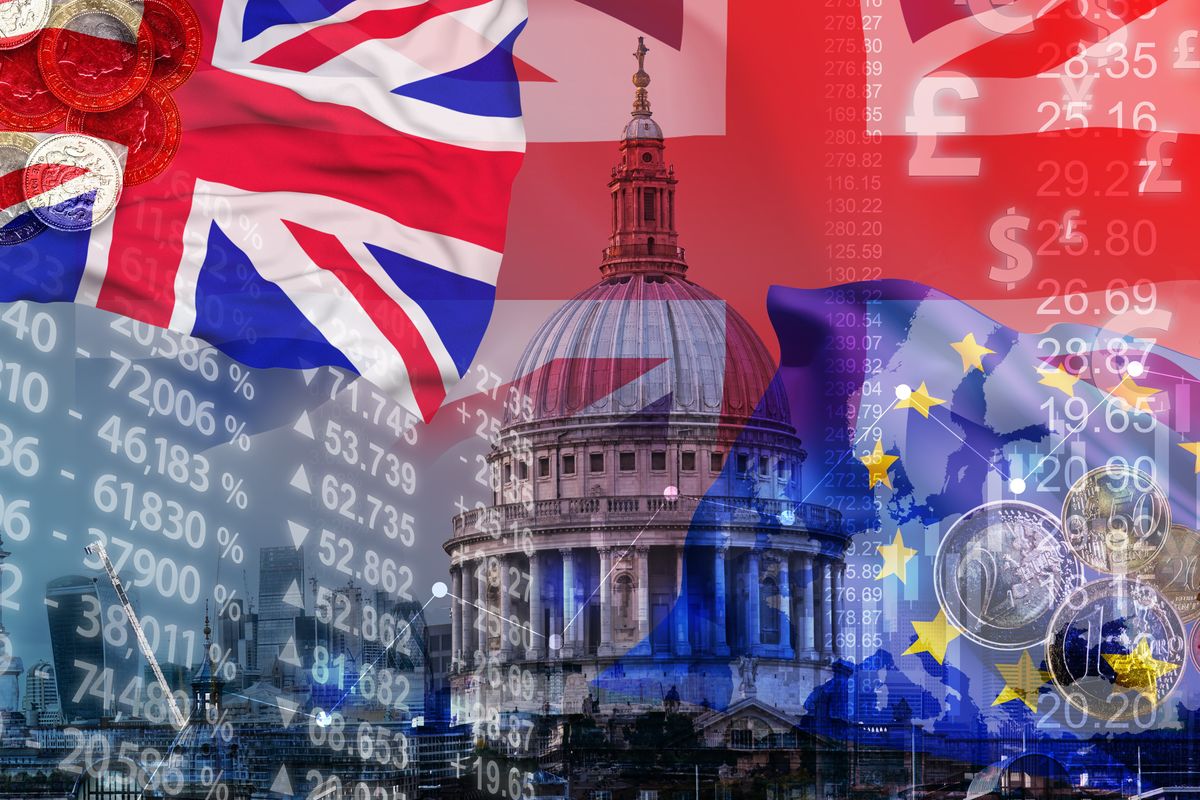Labour's Historic Victory and Britain's Path to Recovery
What does Labour's win mean for Britain's future?

Rana Tabbara
Senior Business Producer
Rana Tabbara is a UAE-based reporter and content creator known for dynamic storytelling, impactful reporting, and high-profile interviews. She interviewed leaders including the UAE Minister of Energy, the Australian Prime Minister, the Saudi Minister of Tourism, the Armenian Minister of Economy, and CEOs of major companies. Rana covered big events like the World Government Summit, LEAP, Cityscape KSA, IDEX, among others. Her previous experiences include The New York Times, CNN Business Arabic, and L'Orient-Le Jour.

UK elections and the impact on its economy
Shutterstock
British voters elected the Labour Party after nearly 20 years, seeking economic rejuvenation and better public services
Labour faces major challenges, including a massive debt burden, stagnant wages, and a struggling National Health Service
The new government plans to work with businesses, exercise fiscal restraint, and invest in green energy, infrastructure, and housing
British voters have given the Labour Party its first electoral win in nearly 20 years, hoping that a new center-left government will rejuvenate the struggling economy and repair failing public services.
This significant moment ends 14 years of turbulent Conservative rule, characterized by austerity measures, Brexit, and tax-cutting. During this period, incomes stagnated, living standards fell, and business investment dwindled.
The victory is a major achievement for Keir Starmer, a former chief prosecutor who entered parliament in 2015 and will become prime minister later on Friday.
“Change begins now,” he declared in a victory speech to party supporters. “It feels good, I have to be honest.”
The country faces numerous issues, including bankrupt local governments, deteriorating infrastructure, a severe housing shortage, rising homelessness, and a National Health Service in crisis.
You earn £82k per year.
You pay £9 per month for Spotify,
£10 for Netflix
And £8.33 per month in your subscription to:
Free healthcare
Free education
Properly funding the NHS
Lifting children out of poverty
Ending the climate crisis
Ending homelessnesshttps://t.co/7bUociMEpt
— The Labour Party (@UKLabour) December 2, 2019
The Labour Party, having secured a victory in Britain’s general election on Thursday, is committed to revitalizing the nation’s economy and promoting job creation and productivity growth across the country. Given that productivity and wages have been stagnant for the last 15 years, this is a formidable challenge.
Keir Starmer, the incoming prime minister, emphasized early Friday morning that transforming the country, including its economy, would require patience and determination.
Britons are understandably eager for change. However, the new government’s ability to address these issues will be significantly limited by a debt burden that now exceeds the size of the economy, making tax increases or spending cuts unavoidable.
The UK economy saw minimal growth last year. Inflation-adjusted wages have barely risen since 2010, leaving people no better off than they were over a decade ago.

Find more statistics at Statista
The Labour Party plans to take a different economic approach from the Conservative Party by fostering closer collaboration with businesses to boost investment while protecting workers' rights. Their economic strategy will focus on ensuring economic security.
The party has also pledged to exercise fiscal restraint, adhering to strict fiscal rules to reduce debt levels, which will likely preclude significant changes to taxes and spending.
Labour is anticipated to prioritize additional reforms and develop institutions aimed at unlocking billions in private investment to enhance productivity and elevate living standards.
Their proposals include, overhauling Britain’s planning system to simplify the construction of infrastructure and over a million new homes, along with the development of new towns, along with creating a national wealth fund to invest in green energy, build gigafactories for electric vehicle batteries, and rejuvenate the steel industry, in addition to setting up a publicly owned energy company, GB Energy, to lessen Britain’s reliance on international energy markets.
Labour asserts that its policies to boost growth are “fully costed.” One of its most notable plans is a £7.3 billion ($9.3 billion) National Wealth Fund aimed at investing in infrastructure and the transition to green energy as part of a broader industrial strategy.
The party also plans to establish a publicly owned energy company, Great British Energy, to decarbonize the UK’s energy grid by 2030. This initiative will cost £8.3 billion ($10.6 billion) and will be partially funded by a windfall tax on oil and gas companies.
Another key priority for Labour is reforming Britain’s planning laws to stimulate a construction boom that aims to build 1.5 million homes over the next five years, making housing more affordable.
While many support Labour’s growth-focused agenda, skepticism remains about whether the vaguely detailed plans will achieve their objectives. The Institute for Fiscal Studies (IFS) notes that apart from significant investment in green projects, all other areas of investment will remain frozen in cash terms for the next five years.







Comments
See what people are discussing